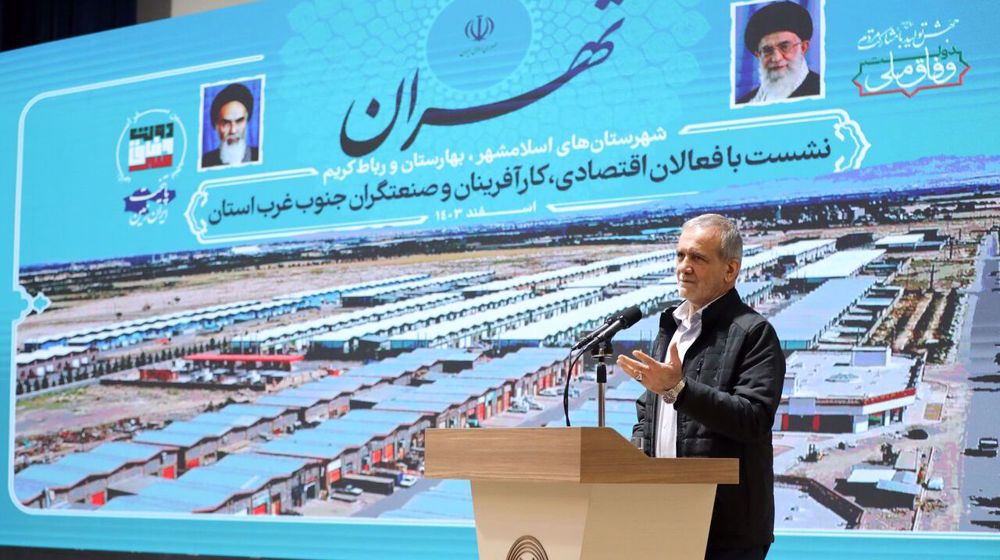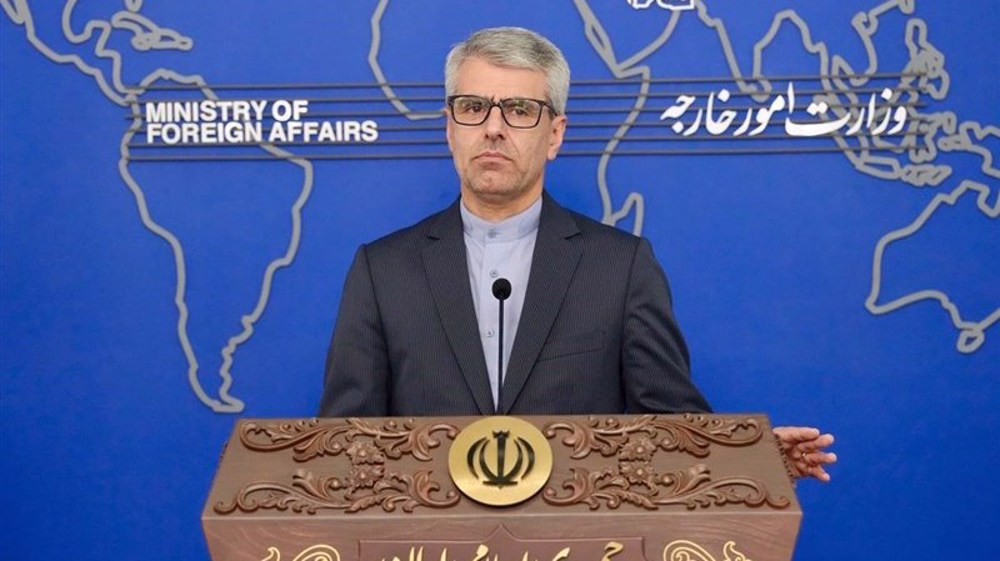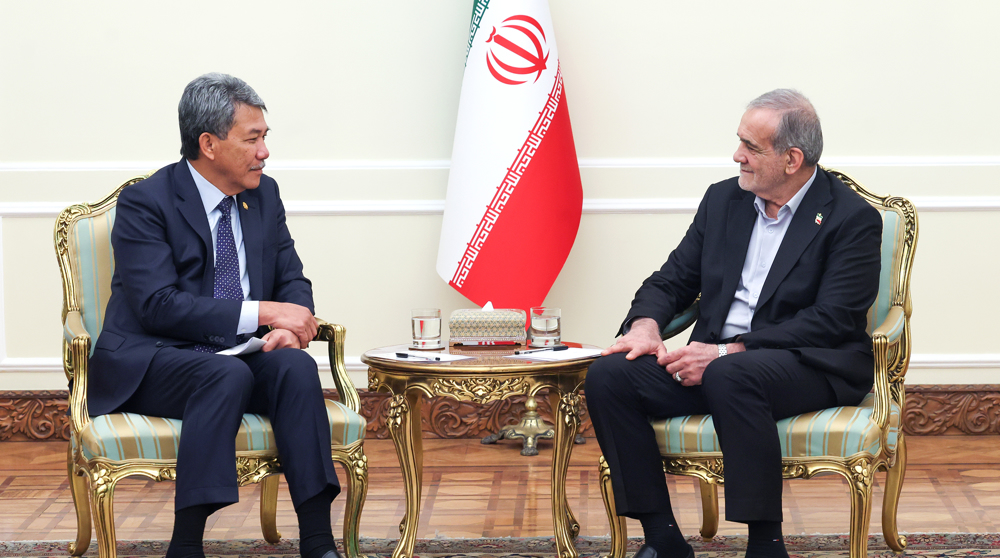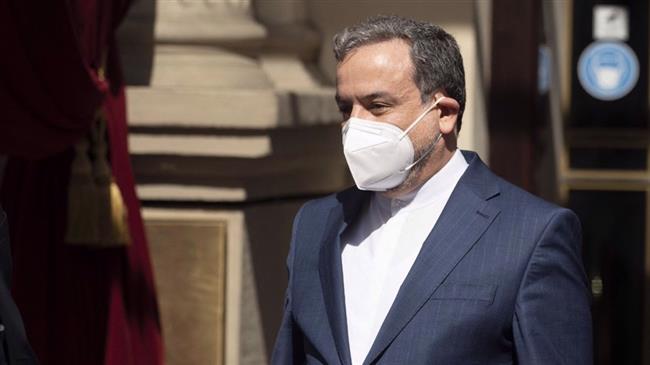Araqchi to Press TV: US must remove all post-JCPOA sanctions before returning to deal
Iran’s top negotiator Abbas Araqchi says in order for the 2015 nuclear deal to get back on track, the United States must remove all the sanctions imposed on the country after the 2015 nuclear deal took effect.
Araqchi spoke to Press TV on Tuesday, following another round of talks between representatives of Iran and other signatories to the deal, officially called the Joint Comprehensive Plan of Action (JCPOA), in Vienna, Austria.
He said all the sanctions imposed on Iran during the terms of ex-president Barack Obama and his successor, Donald Trump, following the implementation of the JCPOA in early 2016 must be terminated before the United States can return to the agreement.
Araqchi said Tehran’s position with regard to the landmark deal has not changed and will not, either, stressing that, “The United States must first lift all sanctions, and Iran will return to its obligations only after verifying the lifting of US sanctions.”
Elsewhere in the interview, Araqchi said before starting the third round of Joint Commission in Vienna, the Iranian delegation had held a number of bilateral and trilateral meetings with other parties as well as with representatives of Russia and China to coordinate their positions on the revival of the JCPOA.
“We have common positions with Russia and China on many Issues, almost on all issues, and there is a good understanding between the three delegations and we have very close cooperation,” the top Iranian negotiator told Press TV.
“We can see enough seriousness in all delegations,” he added. “Everybody is serious enough to work hard in order to come to a conclusion.”
Araqchi also said the delegations at the meeting had decided to intensify the work of two previous working groups on sanctions lifting and also agreed on forming a third group called “Practical Arrangements” which is to start work on Wednesday and its purpose is “to find ideas and solutions for the question of verification, the implementation day and the timetable for implementing the commitments and measures by all parties.”
“We have made some good progress,” the senior Iranian diplomat underlined. “We are on the right track but still we have lots of challenges ahead of us, important challenges that we have to address and we have to deal.”
Araqchi also pointed to the issue of avoiding protraction of talks and reiterated Iran’s position on abandoning the negotiations if the parties lacked enough seriousness.
“We monitor very closely the behavior of other parties. We would certainly not go for time-consuming negotiations with no result. As soon as we see that the other side is not serious and tries to waste the time for other purposes, we will certainly stop negotiations,” he noted.
In response to Press TV's question about banking sanctions and whether Iran would be allowed to have banking relations with the US dollar, the head of the Iranian negotiating team said we should leave the investigation of this issue to the experts, adding that "conversion of different currencies" was currently under discussion.
The JCPOA Joint Commission resumed talks on the revival of the Iran nuclear deal on Tuesday, which was attended by the Iranian delegation and representatives of the P4+1 group of countries – Britain, France, Russia and China plus Germany.
The session was chaired, on behalf of EU High Representative Josep Borrell, by the Deputy Secretary General and Political Director of the European External Action Service, Enrique Mora.
Speaking after the latest round of talks in Vienna last week, Araqchi said the discussions are “progressive” despite “the existing difficulties” facing the diplomatic process aimed at reviving the nuclear agreement.
Iran and the P4+1 group of countries have been involved in the diplomatic process in Vienna since April 6 to save the JCPOA. The nuclear deal has survived almost three years of unilateral US sanctions on Iran, which in turn prompted Tehran to reduce its own commitments in a legal move under the accord.
The US, which withdrew from the deal in 2018, is also in talks with the JCPOA participants, except for Iran. The talks have so far failed to lead to concrete results as the US insists on pushing its own narrative with regard to several issues – including which sanctions need to be removed – into the talks.
The US is also pressing for a step-for-step removal of the sanctions, which has been rejected categorically by Tehran.

Pezeshkian: Iran open to talks but won’t capitulate to bullies

Iran urges swift action to end Israel’s strikes on Syria

Pezeshkian urges promotion of convergence among Muslim states
Over dozen settlers injured in anti-Israel operation near Haifa
Pezeshkian: Iran open to talks but won’t capitulate to bullies
VIDEO | Iran unveils advanced naval arsenal
VIDEO | Reunion of released Palestinians and their families in Khan Yunis
Kurdish leader Ocalan calls on PKK militants to end war with Turkey
Health leader warns Africa's health services at risk of 'collapse'
VIDEO | Press TV's news headlines
Iranian flotilla makes port call in India with 'friendship message'









 This makes it easy to access the Press TV website
This makes it easy to access the Press TV website